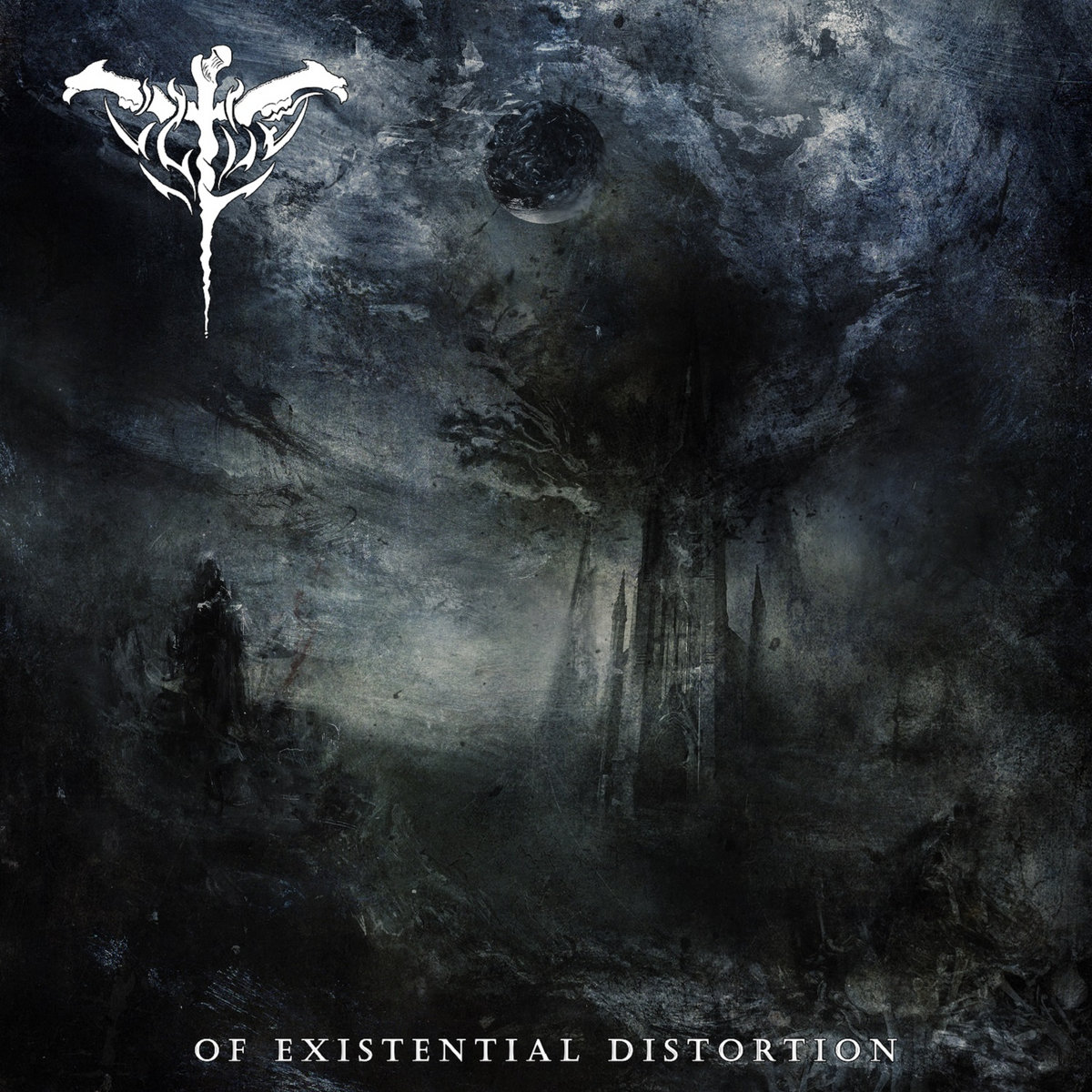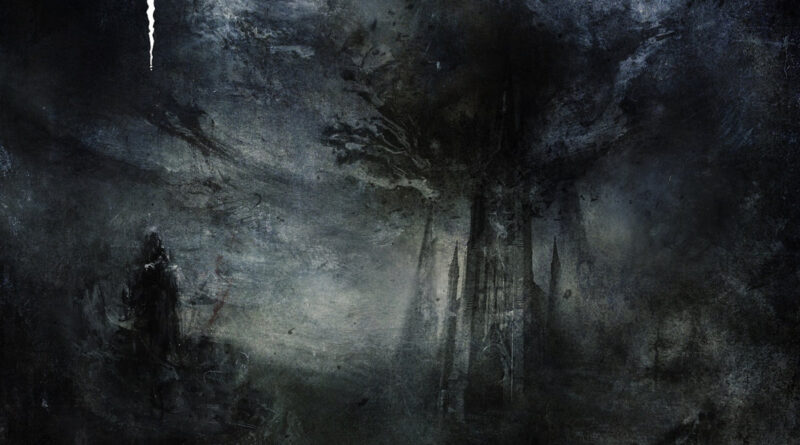ALBUM REVIEW: Of Existential Distortion – Úlfúð
Reykjavik’s ÚLFÚÐ are a bit of an anomaly even within Icelandic black metal circles – a scene that has produced some of the most singularly impressive records of the last few years. Possessing the darkly atmospheric qualities that define some of the nation’s best acts, but applying a slick, catchy melodic edge to it, the five-piece may only have released a single EP since their formation in 2015, but they have managed to distinguish themselves starkly from many of their peers. The band’s first full-length, Of Existential Distortion, refines the style and sound of their First Sermon EP even further, and the resulting combination of punchy hooks and murky ambience proves to be not only an interesting debut, but also lays extremely solid foundations for their musical future.
Where Strange Lights Dance is a fantastically bleak and claustrophobic start to proceedings, with the dizzying whirlwind of caustic guitars, frenzied drumming and harsh, commanding vocals all creating an impenetrable, belligerent sound straight away. It has a solid, modern black metal sound, although with an atmospheric undercurrent and discordant touches that help distinguish it from the second wave formula. Tears Of Terra possesses a sharp melodeath cast, with slick hooks providing a polished and catchy counterpoint to the darker and ominous music that they back. There’s some exceptionally lean, aggressive guitar work on here that sounds excellent and elevates this song significantly as a result.
Mockery Theatre refines and perfects the approach of the previous song, marrying it to the more ethereal and chaotic side of the band’s sound that was showcased on the opening track, with cavernous rhythms and throaty vocals vying with soaring leads and focused intensity, expertly blending the punchy and the punishing to great effect. Faceless, with its thunderous drum sound and measured pace, is a far more epic take on the band’s sound, with the vast guitar sound and sharper, howling vocal register combining to make this sound monolithic throughout, drawing the listener into a hypnotic state whilst still injecting plenty of urgency and ferocity into the mix as the song progresses.
Gods Left Behind is a burst of blistering hooks, angular riffs and sombre, grandiose vocals that lurches between the most visceral moments on the record so far and perhaps its lightest, being at different times not only the most rabid offering on the album, but also its most cinematic by far. Questions begins with a brooding, harmonised riff that sounds like it was pulled from a MY DYING BRIDE track, grabbing the listener’s attention before shifting into a mid-paced, beguiling piece of black metal that fully utilises the style of guitars from the start of the track, albeit with more distortion, with the end result feeling like a great death-doom song recorded with a black metal tone.
An Elegy To A Paradise Out Of Reach once again opts for a broader, more expansive guitar sound, matched by the rumbling percussion of the drums and contrasted by bellicose vocals which range from acidic growls to shrill shrieks. By far the album’s longest track, this manages to incorporate a plethora of styles that have appeared on preceding tracks, from melodic death metal to atmospheric black metal, making for an incredibly eclectic and imaginative piece of music that ebbs and flows from one motif to the next seamlessly. Leviathan Dreams returns to the sort of opaque, sinister sound that featured early on the album, bringing together the darkest, most jarring parts of the band’s sound and adding some great hooks into the mix, built around groove as opposed to polished melodies, and closing the album on a denser, more melancholic sound not unlike the song that started this record off.
As stated at the start of this review, ÚLFÚБs sound is quite distinct from many of their contemporaries, and this album showcases two key reasons for that in abundance; firstly, there’s a marked melodic death metal influence within the band’s sound, taking some of the emphasis away from pure atmosphere and making it far more catchy and instantly memorable. Secondly, the songs are incredibly lean and punchy, with only one track stretching to more than six minutes in length – relatively short and to the point when you bear in mind that many of their peers opt for longer, more expansive songs. This album, being both more generous with its brilliant riffs and less ponderous in the execution of its songwriting, could very well be an excellent gateway record to Icelandic black metal for listeners who aren’t acclimatised to the bleaker atmosphere and sprawling, monolithic approach of other acts, capturing the essence of the scene’s best bands whilst refining it and making it far more accessible.
Rating: 9/10

Of Existential Distortion is out now via Dark Descent Records.
Like ÚLFÚÐ on Facebook.

